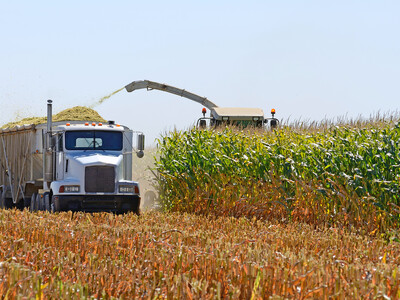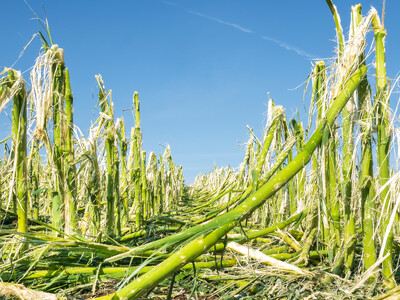Getting Ahead On Weeds
Getting Ahead On Weeds. I’m Greg Martin with today’s Line On Agriculture.
For the seventh year in a row, Oregon is recognizing Invasive Weed Awareness Week. It’s an indication of how important the issue is for the state's natural resources. Early detection, rapid response is the theme to this year's special week. The idea is to enlist the help of all Oregonians to successfully keep out these unwanted invaders.
BUTLER: Finding these things early before it becomes the next Scotch broom or the next tansy ragwort or the next Himalayan blackberry that's covering thousands and thousands of acres. We want to find these things when they are small and control them before they become significant problems.
Tim Butler of the Oregon Department of Agriculture's Noxious Weed Control Program says there are some noxious weeds that are already well established in Oregon. It's too late to eradicate these species. He's most interested in detecting new weeds that can be actively and aggressively attacked. With so many Oregonians enjoying the outdoors, it's an opportunity.
BUTLER: Having people recognize things that are out of place that they haven't seen before often times is something to key in on and to bring it to someone's attention.
Early detection and rapid response has already worked in keeping kudzu, Paterson's curse, and purple star thistle from being established in parts of Oregon.
Shannon Brubaker of ODA's Noxious Weed Control Program gives an example of how a member of the public quickly reported an invasive noxious weed, which was quickly treated before becoming a bigger problem.
BRUBAKER: We had an incident where a gentleman from Australia was visiting on his vacation and actually found a plant in Linn County called Paterson's curse and he recognized it as a plant from home in Australia as a terrible plant.
Brubaker says the Invasive Species Hotline starts ringing a lot more this time of year as Oregonians take to the outdoors and start noticing noxious weeds.
BRUBAKER: Starting about May, we start receiving phone calls about what people are seeing out there- anywhere they are going- hiking, along rivers, as people start fishing, as people start taking vacations, we start receiving a lot more phone calls from the general public, and that is so helpful to us.
The public can keep an eye out for noxious weeds and report them to the Invasive Species Hotline at 1-866-INVADER.
That’s today’s Line On Agriculture. I’m Greg Martin on the Ag Information Network.

















